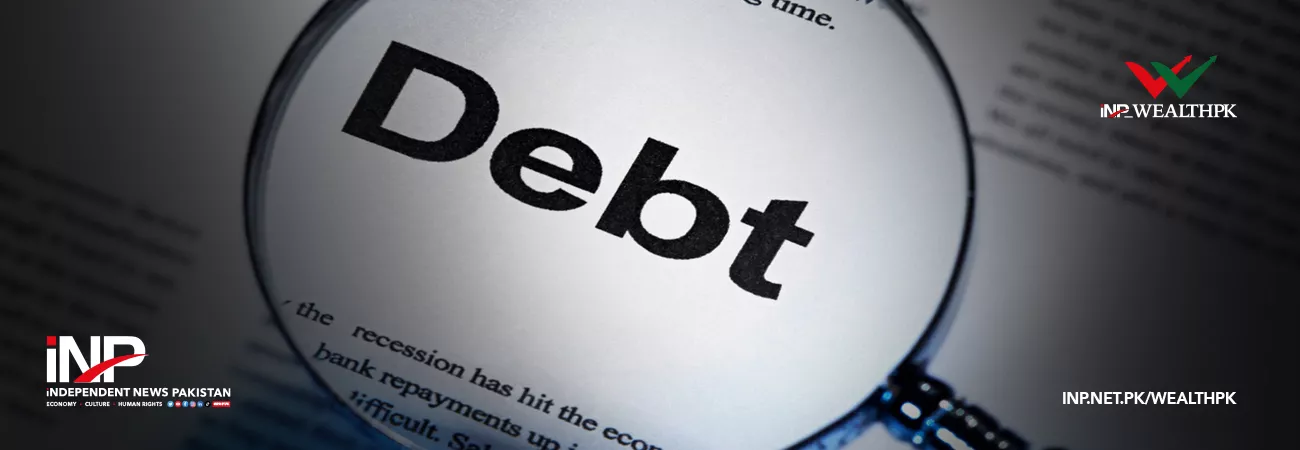INP-WealthPk
Uzair bin Farid
Debt servicing will put a lot of pressure on Pakistan’s investment spending over the next fiscal year (2023-24) as the country will have to return $22 billion in outstanding loans. According to Columbia Threadneedle Investments, an American asset management firm, Pakistan will have to repay five times more debt than its existing pile of foreign exchange reserves, which is going to reduce the capacity of the government to spend lavishly on investment in human capital and physical infrastructure. Commenting on the need of Pakistan to service its debts, Dr Ijaz Ali of the Centre for Business and Economic Research (CBER) said that it remains to be seen how the government balances debt-servicing and investment spending during the next fiscal year.
He said that governments around the world keep their books in order by taking debts, adding that only recently a commotion was seen in the American political sphere over the raising of the debt ceiling to support government borrowing. Ijaz was of the view that there are fundamental differences between economies, and that some economies have the capacity to borrow and sustain their debts. “For example, if the Japanese government takes more debt, no one in the world would dispute and doubt their ability to return it. Why? Because the general perception out there is that it is a highly competitive advanced economy with enough resources to service its debts,” he explained.
However, he said, this is not the case with Pakistan. “Over the past many years, we have been consistently borrowing from outside sources. This has left a huge pile of debt to be returned over the coming years,” he said. Ijaz said that debt servicing has always been a pressing concern for every government. “The successive governments could not siphon off resources from debt servicing to other instrumental areas of the economy like investment in human capital, infrastructure, technology development, healthcare and education,” he said.
Ijaz said the past trend of debt servicing over the need to spend on investment has resulted in a lower-than-average standard of education, health, infrastructure, and scientific achievements in Pakistan. He said all of this is called as return on investment. “If the return on investment is not good, it means that we have invested in the wrong place or that we have not put in enough investment. In either case we stand to lose from such a bargain,” he explained. “We have a mountain of debt to be paid back, and there is no visible capacity in our capital to develop itself. We need help from our international partners like China so that the economic situation remains under control,” he added.
Credit: Independent News Pakistan-WealthPk




